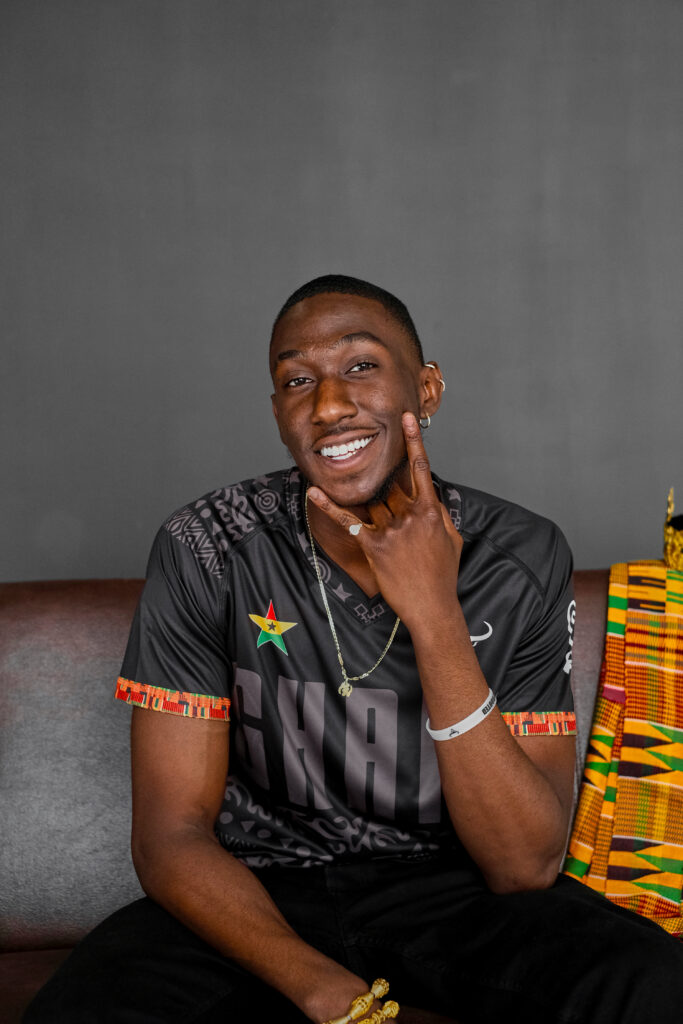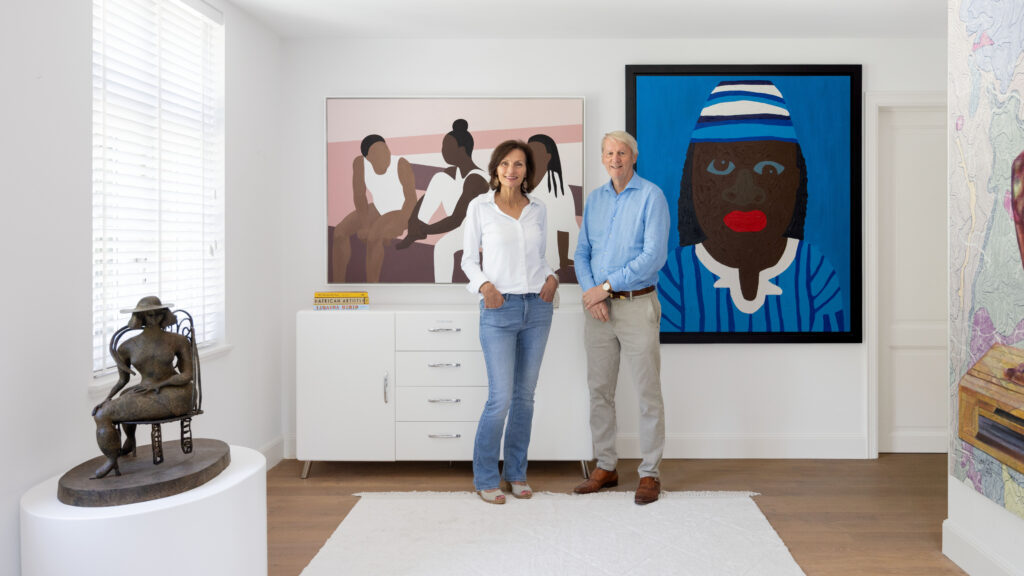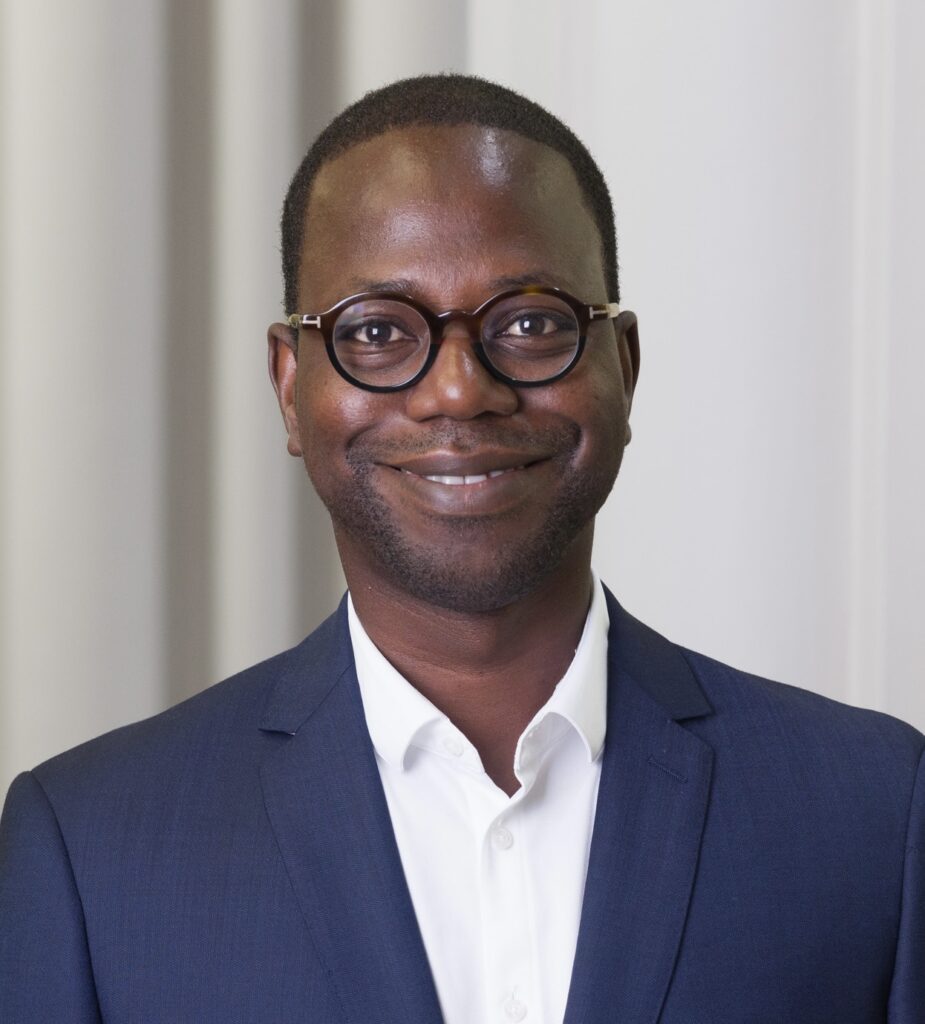In the vibrant landscape of contemporary fashion, a brand exists that transcends mere aesthetics to become a powerful emblem of cultural pride and celebration. Founded by Paakow Essandoh, MIZIZI is a testament to the fusion of African and Caribbean heritage with modern streetwear sensibilities. MIZIZI has emerged as a beacon of authenticity and representation in the fashion industry through its distinctive jersey designs and collaborative ventures.
Paakow Essandoh’s journey to entrepreneurship is as multifaceted as the diverse cultures he seeks to honor through his brand. Born in Brooklyn, New York, to Ghanaian parents, Paakow’s upbringing traversed various American states, each imbued with its distinct cultural tapestry. This mosaic of experiences ignited Paakow’s passion for exploring and celebrating his African roots while navigating the complexities of his American identity.
Amidst this journey of self-discovery, MIZIZI was born—an embodiment of Paakow’s vision to create a streetwear brand that goes beyond fashion, serving as a platform for cultural connection and representation. Inspired by encounters with fellow diasporic individuals and fueled by a desire to bridge cultural divides, Paakow embarked on a mission to redefine traditional notions of African and Caribbean apparel.
Through innovative design, meticulous research, and genuine engagement with diverse communities, MIZIZI has carved out a niche in the fashion landscape, capturing the essence of various African and Caribbean cultures in every stitch. From collaborating with global brands like Marvel and Disney to amplifying underrepresented voices within the diaspora, MIZIZI’s impact extends far beyond fashion, embodying a spirit of empowerment and inclusivity.
In this exclusive interview with Africans Column, Paakow Essandoh provides unparalleled insights into the genesis of MIZIZI, the creative process behind its iconic collections, and the challenges and triumphs of building a brand rooted in cultural authenticity.
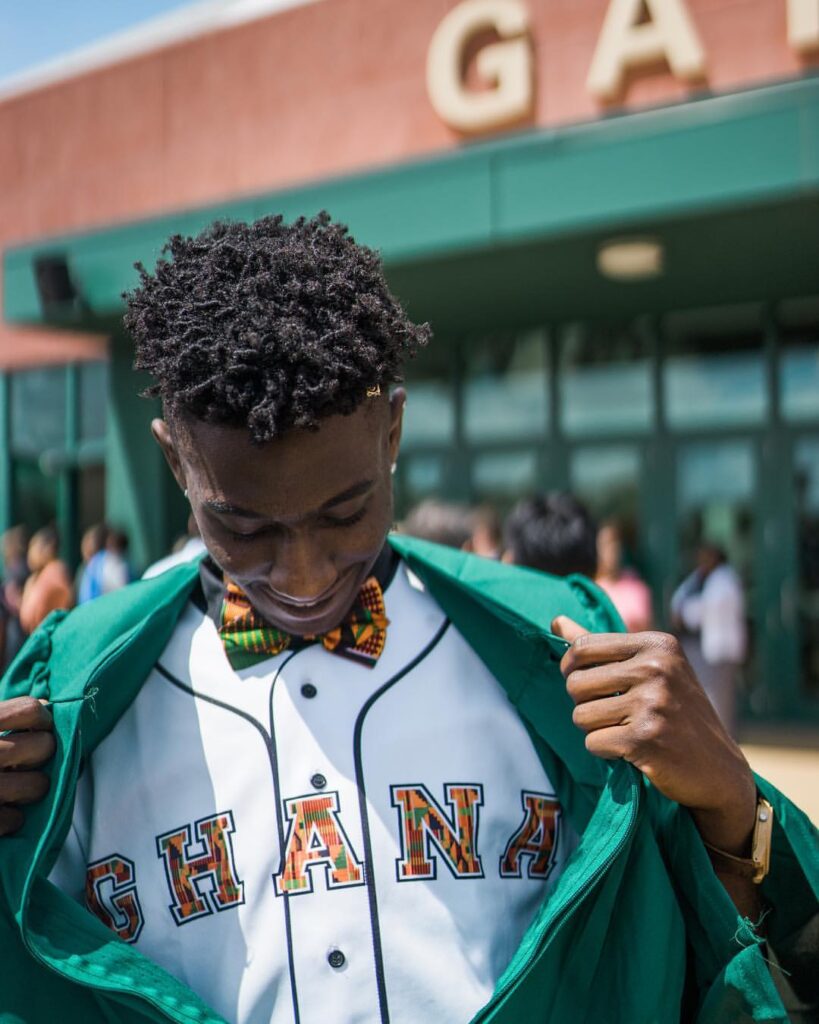
Interview:
Africans Column: Could you tell us about the inspiration behind starting MIZIZI? What motivated you to create a streetwear brand that celebrates African and Caribbean cultures?
Paakow: So it started because I was lonely. Here is a little background about me: I am Ghanaian. My mom moved to America in her 20s. I was born in Brooklyn, New York, and then we moved to Columbus, Ohio, and then to Dallas, Texas. Ultimately, I went to school in Tampa, Florida. Each of those states is very different.
I had an identity crisis when I went to Florida. It was a culture shock because I had never experienced Caribbean culture as much as I did there. So MIZIZI was just a passion project for me to learn more about my Ghanaian heritage, how my culture is similar to others, and to connect with other black people who looked like me but had different backgrounds. It was ignited when I met this Kenyan kid straight from Nairobi. He used to come into the dining halls wearing the same stuff we’d wear in the States but with Kenyan fabrics, adding a unique touch. I had a small background in fashion from high school when I used to design and sell T-shirts. Seeing what he used to wear and knowing my experience, I thought, ‘Okay, maybe I can put something together.’ He was the one who helped me come up with a name. I wrote the words in English, and he translated them into Swahili. When he said it was MIZIZI, I thought, ‘Okay, this is smooth, and I like this.’ So that’s what started the journey.
I fully fleshed out the idea over the next year and a half. I went to New York to find a manufacturer, but it didn’t work. I took time off from school and went back home to Texas because I was too lonely in Tampa; I really hated it. It was tough.
I was going to school to become a pharmacist. When I returned home, I worked at some retail pharmacies as a pharmacy tech, and I hated it. I realized I didn’t want to go back to school just to end up right back there. So that’s when I started taking MIZIZI more seriously.
Over my sophomore year, I tried to license the idea. I pitched the idea of MIZIZI to other streetwear companies or African apparel companies in the States, Canada, Europe, and Australia. Everybody told me no or ignored me, or they said it was a good idea, but they had too much on their plate. I call it divine intervention because, after that sophomore semester in Tampa, I ended up lonely and depressed. I ended up driving to Orlando, two hours from outside of Tampa, and I stayed on my friend’s roommate’s brother’s couch. My friend’s roommate had a clothing brand in Miami, and they used to make custom baseball jerseys for celebrities. So I pitched to him: ‘Here’s a line of African baseball jerseys.’ I put together this 50-page business plan showing the most significant diasporas in the States, which cities they’re located in, who they’re following on social media, everything. I didn’t necessarily have to go through the grunt work of manufacturing, but I could show them how to sell it and get paid off royalties. He told me no, but he pointed me to manufacturing overseas, saying US manufacturing is too expensive.
After that, I sent out a few quotes in Asia and realized I was getting quoted a tenth of the price of anything American manufacturers were charging me. I got some samples, and they were ten times the quality. By then, it was just a missing piece. So, I set up a photoshoot back home in Texas and officially launched MIZIZI on August 30, 2015. And I haven’t looked back since.
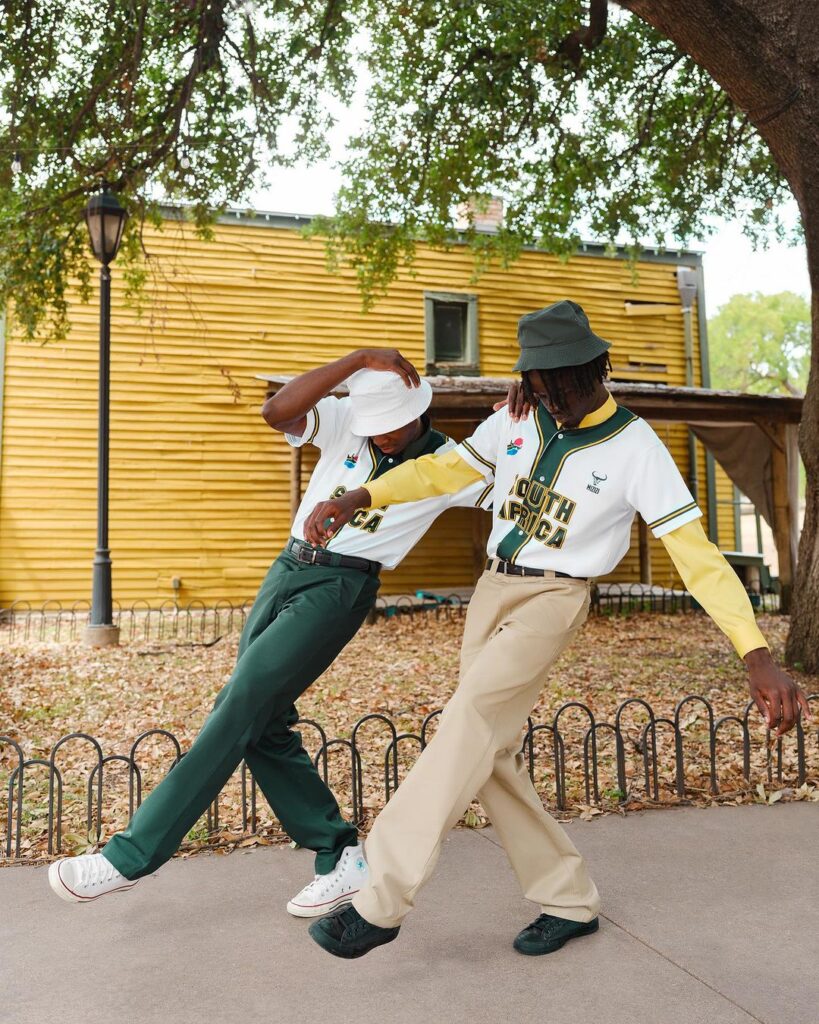
Africans Column: MIZIZI is renowned for its unique jersey designs incorporating symbols, patterns, and themes from various African and Caribbean countries. How do you select these elements, and what significance do they hold for you?
Paakow: It’s a balancing act with which countries we go with. Typically, we listen to our audience first and then see which countries people want to start with. Secondly, we represent underrepresented countries. But at the same time, if the diaspora is small, our market is primarily in the US, where most of our audience is, although we’re a global brand.
So, we try to figure out which diasporas have a population in the States that can buy all the jerseys we make.
Regarding incorporating symbolism into the designs, I talk to people from these communities and countries and ask them, ‘What are the nuances we should keep in mind to accurately represent your culture?’ From there, it’s picking and choosing, figuring out where it looks good and doesn’t. Both of our designers, our head designer and assistant designer, are in Accra, Ghana. So, I never say I’m a designer; they’re the ones who have all the genius ability. I just have the input. I just look and see what I like and don’t like, and they’re the ones who create it. Then, we discuss, discuss, and figure out what we like. Once we agree on something beautiful, we ship the product out.
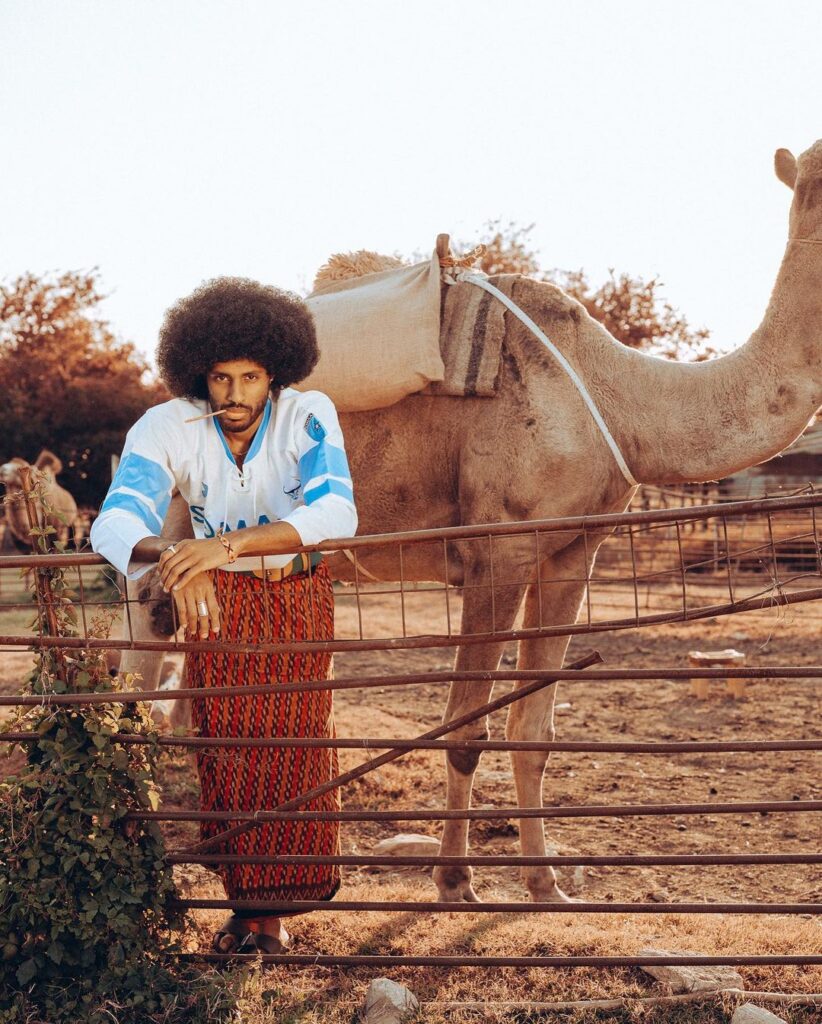
Africans Column: Your brand’s mission is centered around cultural connection, representation, and celebration of the diversity of the African diaspora. How do you ensure these values are reflected in every aspect of MIZIZI, from design to marketing?
Paakow: I think that in regards to connection and representation, or even with representation, right, with the jerseys, we try to make sure that they accurately represent these countries and cultures, adding these nuances, avoiding taboos, and making sure that people feel like when they see the product, ‘This guy gets it’ or ‘he must be XYZ,’ or wherever they’re from or whichever country we’re representing.
Regarding connection, our jerseys are like conversational pieces. When people see them, they get curious about the countries and ask, ‘Oh, what does 1957 mean?’ ‘Oh, that’s our independence here.’ ‘What does this Blackstar mean?’ Or it allows people to connect with others and educate them about their cultures. If they’re Ghanaian themselves, they’ll see another Ghanaian and be like, ‘Oh, this guy is my people.’ So, they sometimes feel supported like I did in Florida.
Regarding the celebration aspect, we’re smiling anytime you meet any of us on the team. We’re having a good time. It’s usually a party, and we’re just jovial. I get that from my mama. She’s pleased, which has trickled down to me and into the brand DNA. So, we make sure that anytime people are interacting with MIZIZI, it feels like a good time. They feel like they’re part of a family and being celebrated.
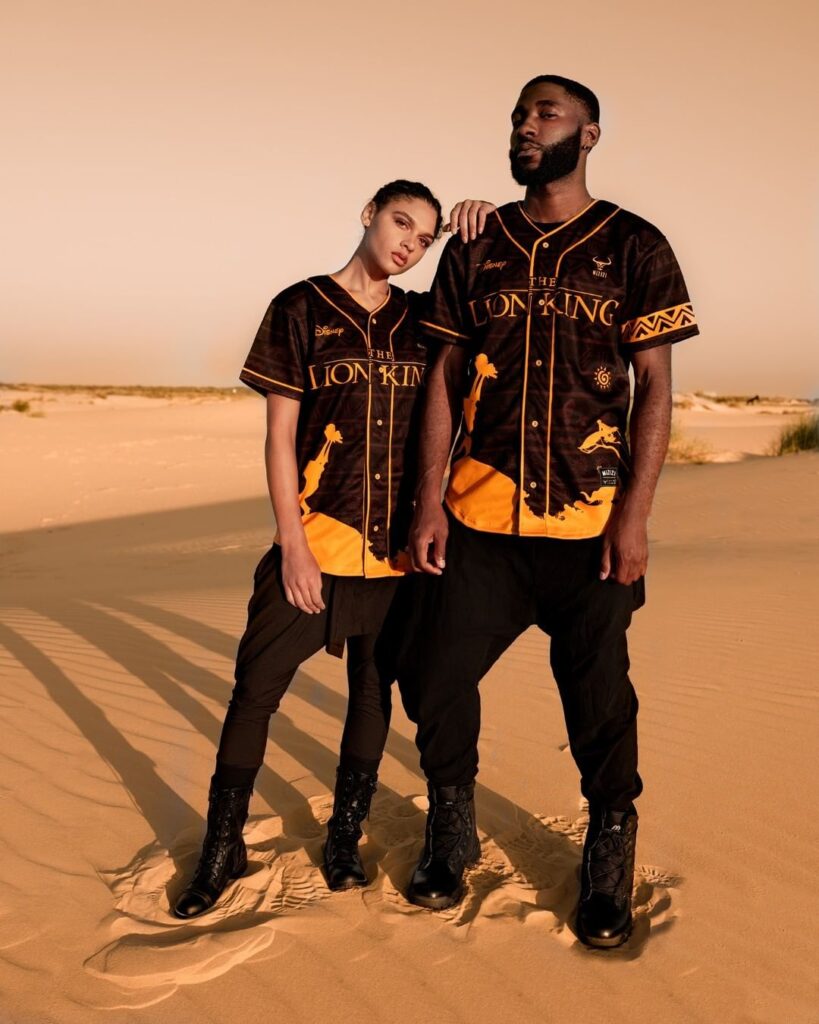
Africans Column: MIZIZI has collaborated with major brands like Marvel, Disney, and Viacom. Can you share insights into how these collaborations came about and what they mean for the brand’s growth and visibility?
Paakow: The first one started with our Black Panther Wakanda Jersey. It was back in 2017 when the movie trailer had dropped, and people on Twitter were discussing what to wear to the movie. Some suggested wearing traditional attire, while others suggested wearing MIZIZI. Then people said, ‘No, MIZIZI needs to make a jersey.’ I took that idea, and at first, I was hesitant. I thought, ‘Okay, Marvel is a big company, and we’re just a three-year-old black-owned business. What sense or business do they have working with us?’ But I started doing more research, figuring out what products they currently had on the market, how their baseball jerseys compared to ours, and how they reached the African diaspora. I put together a whole presentation outlining why MIZIZI would be a good partner for them. I found out who worked at Marvel’s licensing department through their website. I created a LinkedIn page solely for this purpose. If people get a random cold email from me, what do I want to pop up when they Google my name? So, I created a LinkedIn. I started sending the pitch out to the licensing department. They immediately rejected me, saying they already had licensees and didn’t need any more. They even threatened legal action if I released any product with Marvel IP on it, copying their legal department. So, I decided to try another approach. That’s when I put together a whole MIZIZI for Marvel campaign. We made a mock- up design of the jersey and rolled out a video campaign urging people to tell Marvel they wanted it. This went viral, especially after it got picked up by The Shade Room. However, Marvel still ignored me. By February, the movie had launched, and to show our support, we rented out a movie theater for a MIZIZI movie night premiere of Black Panther. We invited people to watch the movie with us, offering free admission if they wore a jersey or $5 if not. It was a fun time, but I am still waiting for a response from Marvel. Throughout this process, I looked up who worked at Marvel’s licensing department on LinkedIn and reached out to them there. There was one somewhat responsive lady, sending words of encouragement sporadically. In March, the team and I decided to move forward, but that lady responded, saying she loved our ambition and would connect us with someone at Disney. I followed up with an email to Disney, and after a week, I got a call from someone at Disney Consumer Products praising our tenacity. I flew out to LA within 48 hours, met with the Disney consumer products team, and signed a contract to make the Wakanda Jersey a part of the Black Panther movie merchandise for the DVD release in July. From there, doors started opening for us. They called us back for Lion King, and once they saw what we did for Lion King and Black Panther, Viacom approached us for Coming to America. The Black Panther jerseys opened all these doors for us.
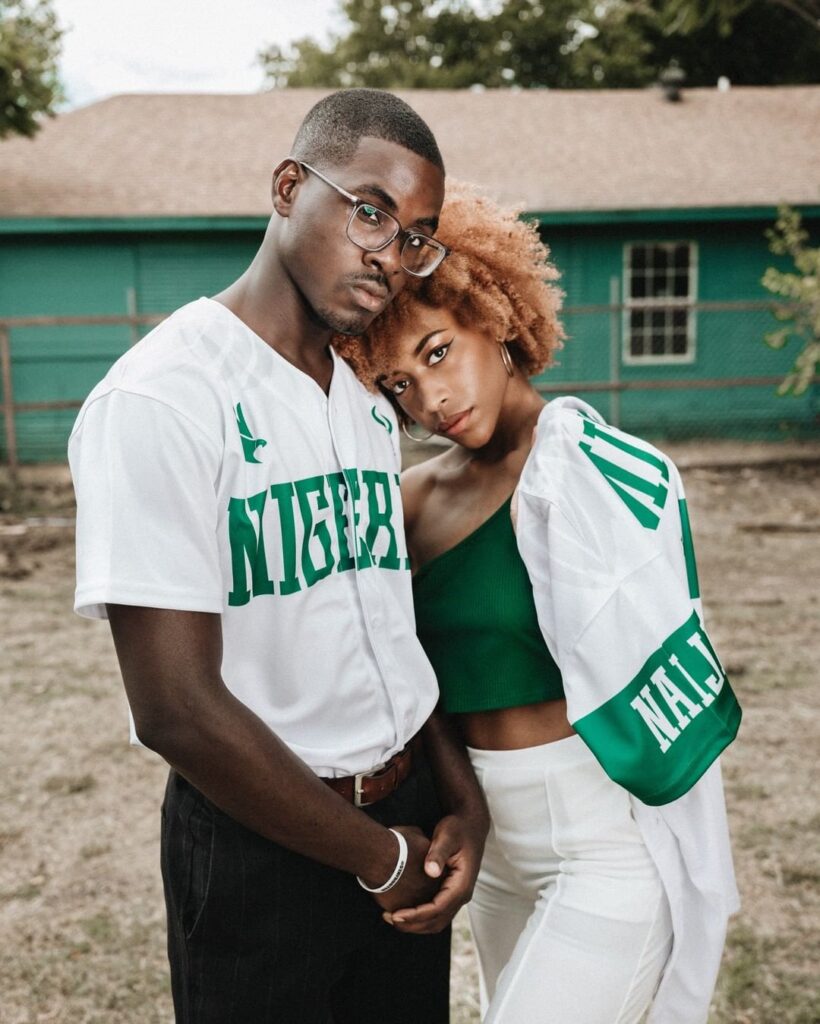
Africans Column: As the founder, can you walk us through the creative process behind designing a new collection for MIZIZI? How do you approach blending contemporary streetwear aesthetics with traditional cultural elements?
Paakow: I touched on it earlier where, as a team, we discuss which countries make sense, what we’ve done in the past, what’s worked and what hasn’t worked, and our plans for the upcoming year. This is where my expertise comes in—I enjoy researching countries and cultures. I get obsessive, trying to find the small nuances that people from that country would know about but may not be well known outside of it. For example, people might not know about the Zimbabwe Harare UFO incident in 1994 or that Somalia has the most significant population of camels in the world.
From there, I gathered as much research as possible and jotted it down. Then, I let the designers, Kenneth and Kofi, have creative freedom. They come up with whatever they think works best. We discuss it further to determine what we like and don’t like. Once we have an excellent first rough draft, I start talking to people from that country and community, asking for their opinions and if there’s anything we should keep in mind or change. We sometimes change based on their input, but we do consider it.
Some countries have divisive internal politics, so we avoid taking sides or alienating ourselves when representing a country. Once we get to production, whatever we couldn’t incorporate into the design, I will try to add to the visual campaign. For example, for the Harare incident and the Zimbabwe hockey jersey, we didn’t want to add a UFO to the jersey’s design, but we included a UFO in the background of the photo shoot. We found a location with futuristic houses similar to UFOs and shot the campaign there to allude to the UFO incident in 1994.
That’s typically how we go about it: I research, the designers create the designs, we discuss, and whatever research couldn’t be used in the plans, we try to incorporate into the visual campaigns. Our creative director, Kwesi, who is predominantly Ghanaian, comes up with the concepts for the campaigns, using the research I provide to ensure that MIZIZI understands the nuances of each country. Then, we shoot the campaigns, produce them, and roll them out to the people.
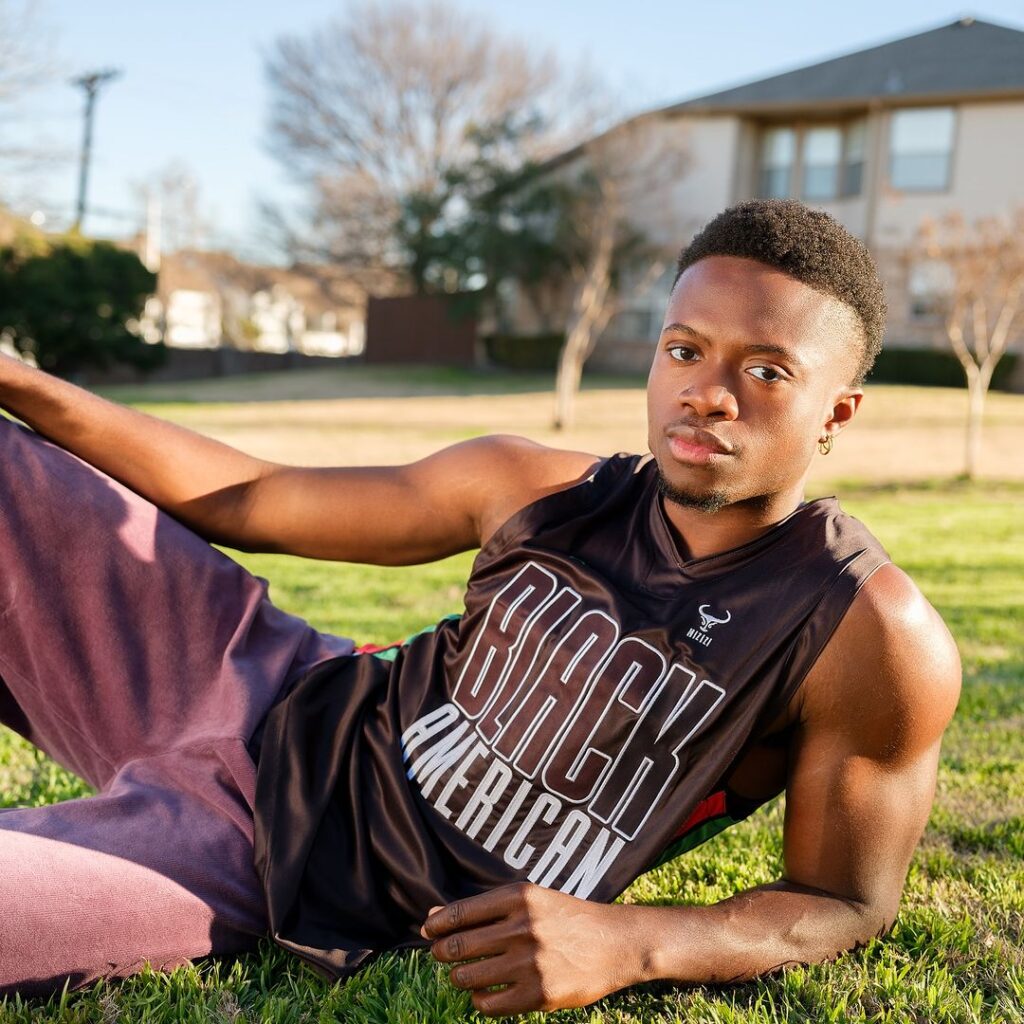
Africans Column: As a Ghanaian-American entrepreneur, how do you navigate the intersection of your African heritage and American identity in your work with MIZIZI?
Paakow: Being bi-cultural has given me a unique perspective on how we can represent cultures in a non-traditional way. Even at the inception of MIZIZI, I wanted to do something that wasn’t your typical African attire. You see a lot of companies, such as African apparel companies, representing the continent or countries similarly. It’s the same style in the States but with Kente fabric patched onto the sleeves and other elements. And while I thought that was cool, being American, I wanted to put a different spin on it.
That’s when I noticed baseball jerseys were a trend in 2014, with every retailer in America having their version, from Nike to Forever 21. Combining the two cultures was fantastic and different. Baseball is America’s pastime while still infusing Ghanaian and other African cultures. With each of our campaigns, I try to find that middle ground where it’s African but still has a Western vibe.
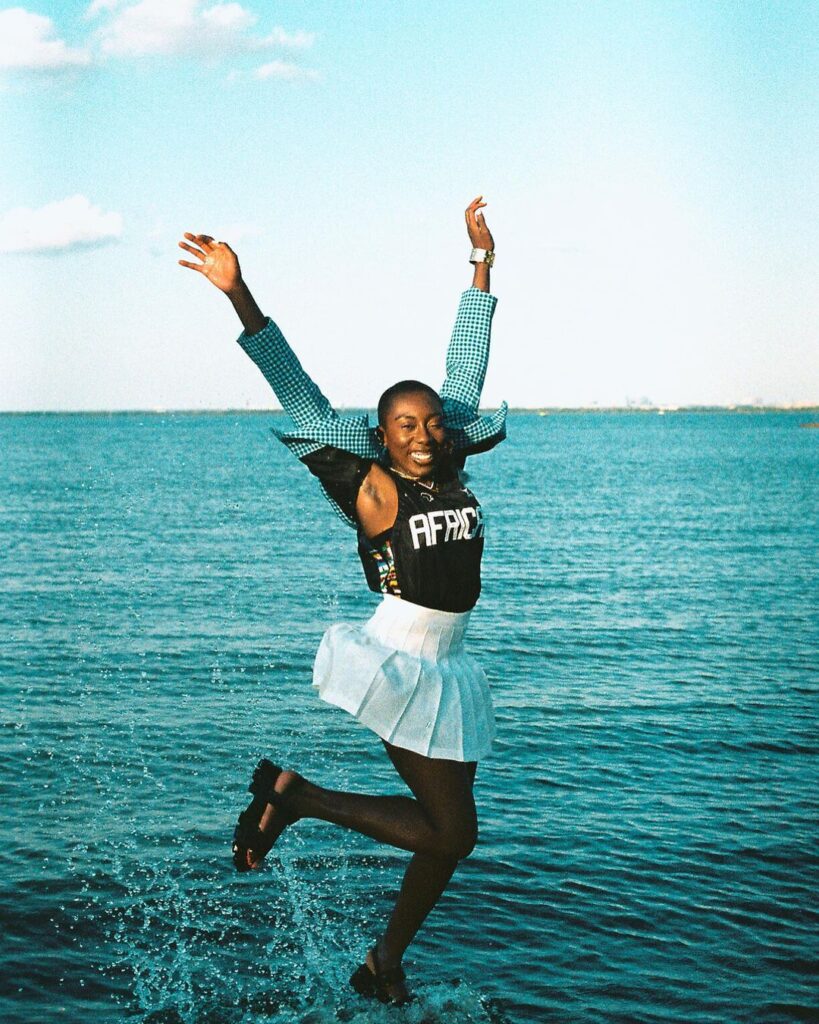
Africans Column: What challenges have you faced in building and growing MIZIZI, particularly in the competitive fashion industry, and how have you overcome them, especially concerning cultural representation?
Paakow: the most significant challenge we faced was sometimes needing to improve designs. There were instances where I would do a quick Wikipedia search on a country and put together what Wikipedia told me rather than engaging with people in those communities. Initially, we were trying to ship products too quickly or turn around new designs too fast. But when you rush, you don’t give each culture its due diligence.
I learned early on when people complained, saying, ‘Where did he do his research? This isn’t us; this doesn’t authentically represent us,’ it was a wake-up call. Africans don’t consider us a monolith, and when they don’t like something, they’ll let it be known. So, we had to learn that the best way to represent these cultures is to immerse ourselves in their communities, hang out with them, talk to them, and learn about their likes, dislikes, and how they see different things. Even though two countries may be side by side, they can have completely different cultures with unique nuances.
Early on, we learned that the best way to represent these people is to genuinely engage with them, get involved in their communities, and learn about them more authentically.
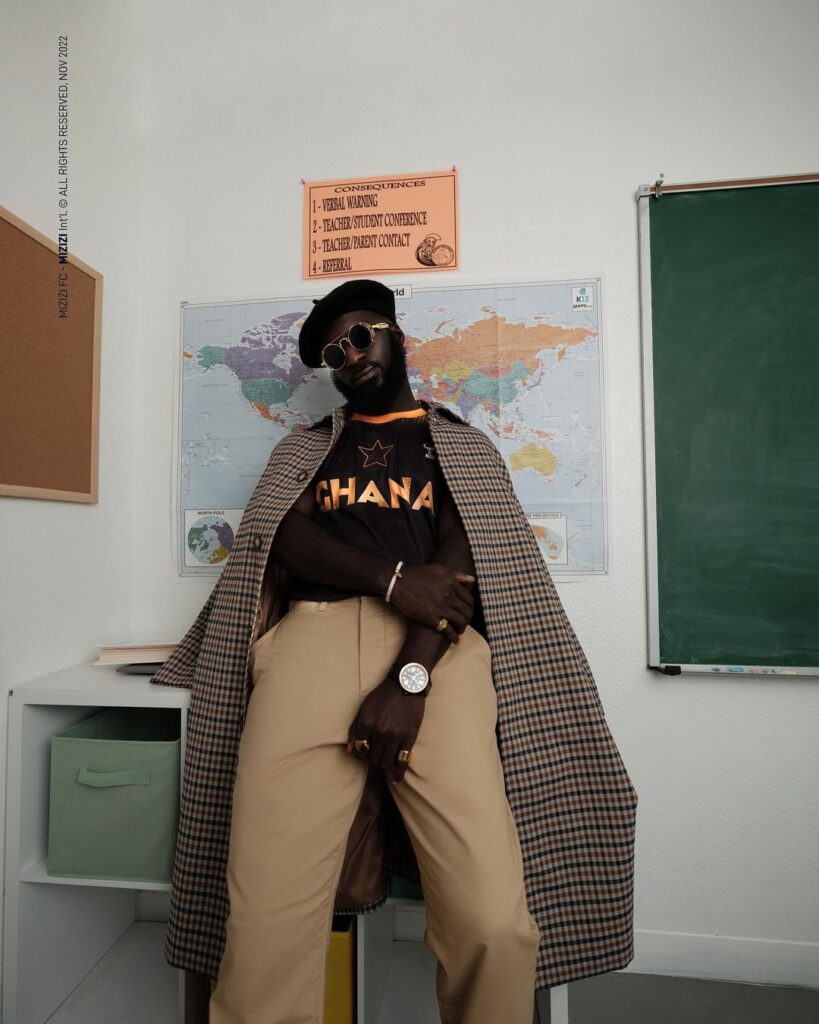
Africans Column: What are your aspirations for MIZIZI’s future? Are there any exciting projects or collaborations on the horizon that you can share with us?
Paakow: We aim to represent countries in international events like the World Cup, Olympics, or Afcon. We’ve expanded beyond movie partnerships and are now working with companies across all industries, from sports to travel, to introduce products that cater more to everyday leisure. Instead of just jerseys, we’re offering a range of accompanying items.
So, the aim is to become a fully-fledged sportswear brand, not just producing jerseys but also offering a comprehensive range of products that authentically represent all 55 countries on the continent.
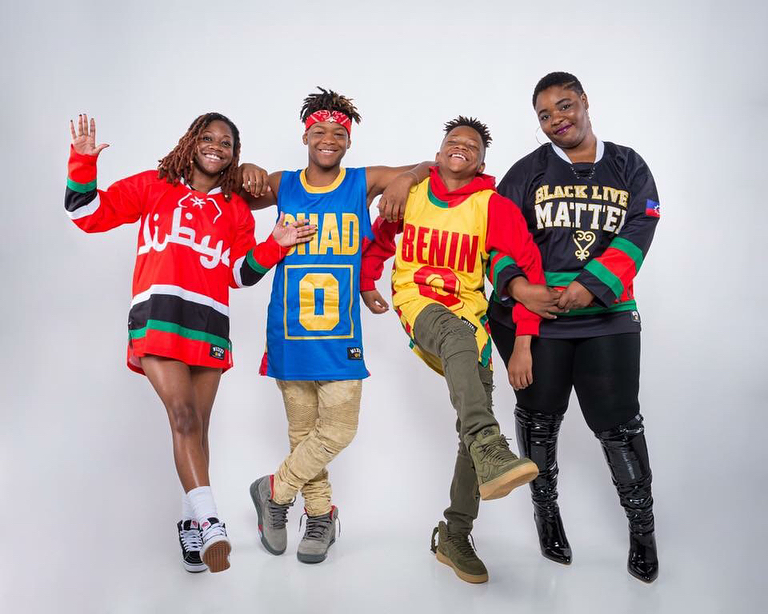
Africans Column: What advice would you give aspiring entrepreneurs, particularly those looking to start businesses celebrating their cultural heritage?
Paakow: Don’t get caught comparing yourself to others and their accomplishments. Fashion is a very egotistical industry, where it’s all about who’s who and who’s cool. Everybody’s just trying to show off and be seen. The product will speak for itself. Regardless of whether you’re in the spotlight or not, if you’re producing a good product, it will spread and ship.
The biggest thing is not to give up. Know when to pivot if something isn’t working. Be aware of that, and just know when to pivot. But grit will get you through. Some designers may be the most popular worldwide but need $1 in their pocket. So, avoid getting caught up in the image of things. Focus on what you can do and what your product is. And just don’t give up. Many people quit too soon, and you never know when the next design will take off.
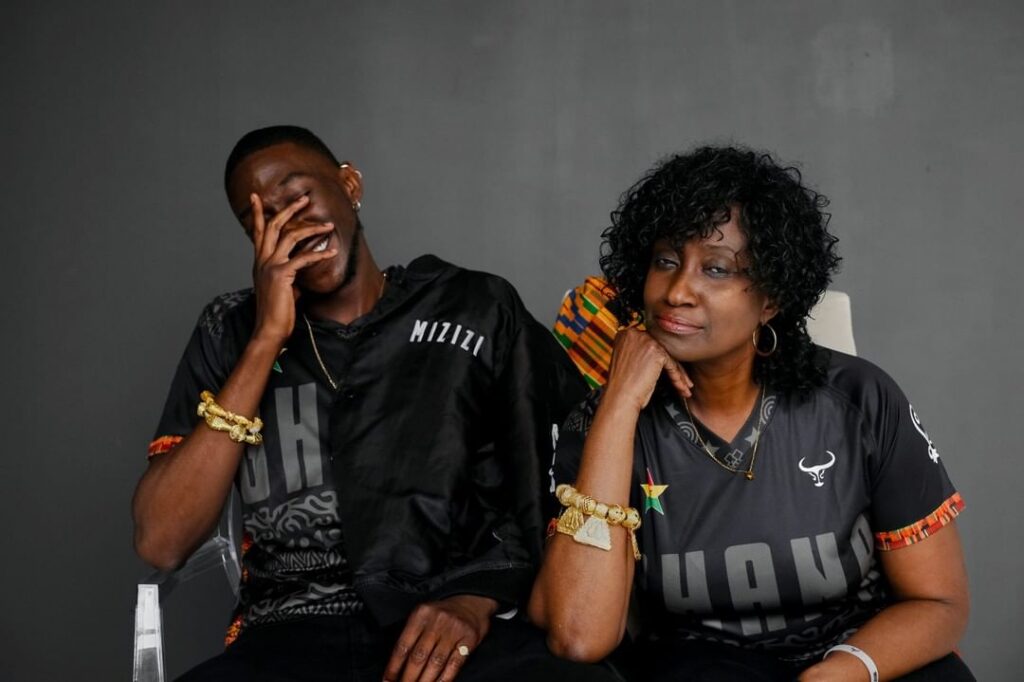
In conclusion, our interview with Paakow Essandoh, the visionary behind MIZIZI, sheds light on the profound journey of cultural exploration and entrepreneurial resilience. From the initial sparks of inspiration born out of personal experiences to the meticulous process of blending contemporary streetwear with traditional cultural elements, Paakow’s narrative exemplifies the power of passion and perseverance in carving a niche in the competitive fashion industry.
Through MIZIZI, Paakow has not only created a platform for celebrating African and Caribbean cultures but also fostered meaningful connections and representation within the diaspora community. His dedication to authenticity and community engagement underscores a commitment to cultural appreciation and empowerment.
As MIZIZI continues to expand its reach and redefine the boundaries of cultural expression, Paakow’s journey serves as an inspiration for aspiring entrepreneurs seeking to embark on their own ventures rooted in heritage and innovation. With unwavering determination and a profound appreciation for cultural diversity, Paakow Essandoh and MIZIZI are poised to leave an indelible mark on the fashion landscape, one stitch at a time.
